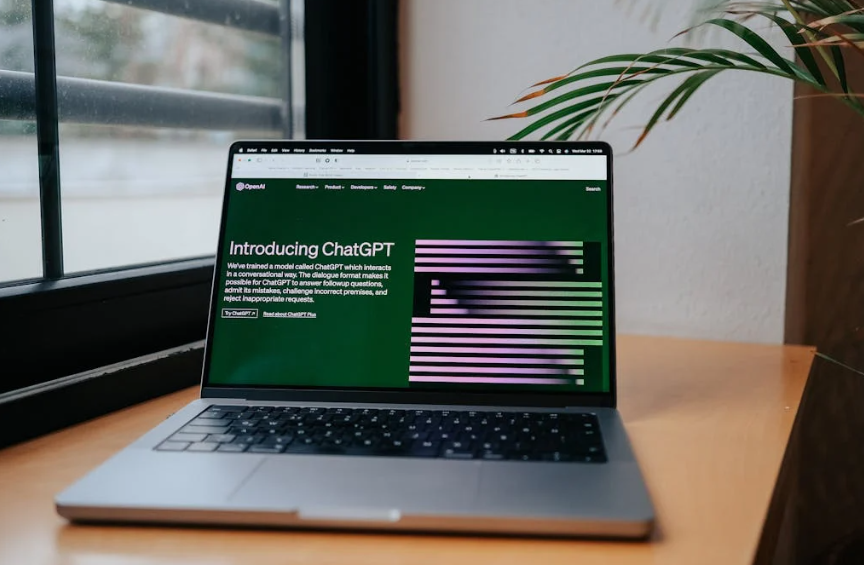Remove ChatGPT malware
“ChatGPT malware” refers to all malicious activities performed by impersonating ChatGPT, an artificial intelligence chatbot. Due to its extremely high popularity, malicious actors often misuse the popularity for their malicious purposes. That includes disguising malware as ChatGPT apps and desktop clients, as well as distributing ChatGPT cracked versions that supposedly give users access to premium features. It goes without saying that any fraudulent or malicious activities are not associated with the actual ChatGPT in any way.
If you plan on downloading ChatGPT’s desktop or mobile versions, make sure you use legitimate sources. Even before ChatGPT had a desktop/mobile version, there were many sources promoting malware disguised as these versions. They were commonly promoted on various Facebook AI groups, forums, malicious sites, etc. Even now, fake ChatGPT promoted on malicious sites is common, even if desktop/mobile versions can be downloaded from legitimate sources like app stores and the official site. While official app stores like the Google Play Store are not impenetrable by malware, it’s still much safer to download apps from them compared to third-party app stores, which are often poorly moderated and full of malware.
For every software that has a premium version, there’s someone promoting cracked versions that allow users to access premium features without needing to pay. This is the case for most programs, let alone ChatGPT, which has 400 million weekly users. Pirated software has always been an issue, and pirating is not going anywhere. However, if you are considering downloading a ChatGPT crack, keep in mind that you are putting your computer at risk in addition to essentially stealing. All kinds of malware could be disguised as ChatGPT cracks, including ransomware, keyloggers, trojans, etc. These types of infections can have very serious consequences, including unauthorized access to important accounts, money loss, identity theft, etc. While we cannot stop you from pirating software, you should at least be aware of the many risks involved.
ChatGPT offers premium versions depending on customers’ needs. This has also triggered malicious actors to create fake payment sites that closely imitate the legitimate one. These types of sites may try to phish for highly sensitive information (full names, phone numbers, etc.), as well as payment card details. Typing in credit card details on a phishing site would likely result in malicious actors making unauthorized payments. As is always the case with payment card information, you need to be very careful where you type it in. If you plan on purchasing a ChatGPT premium plan, make sure the purchase is done via the official site/the app. Always check the URL of a site before typing in any details to avoid becoming a phishing victim.
It should also be mentioned that malicious actors also try to hijack users’ ChatGPT accounts via phishing attacks. Depending on the purpose for which ChatGPT is used, it can contain a lot of highly sensitive information if chats are saved. If a malicious actor were able to gain unauthorized access to a business account, for example, they could use all the imputed information for malicious purposes.
Lastly, we should mention that ChatGPT has nothing to do with the scams or the malware, it’s name is marely misused for malicious purposes.
Links to fake ChatGPT sites are often promoted on social media
Links to fake ChatGPT sites as well as disguised malware are often found on fake Facebook accounts, Facebook groups, X, and many other social media platforms. If malicious actors put in enough effort to make social media profiles look legitimate, they may be able to trick less attentive users who do not do the necessary amount of research. The sites promoted by these fake social media accounts may look practically identical to the legitimate ChatGPT website, and even their URLs may closely resemble the legitimate one. Even trusting search engines to provide the correct link to ChatGPT in the first results is not a good idea, as malicious actors may misuse advertising programs to insert their malicious link as a sponsored one that would appear at the very top of the results. Various forums are also full of malicious software promoted as ChatGPT cracks of premium versions.
To avoid ChatGPT malware, you need to always check the URL, download only from official stores/sites, and not try to pirate ChatGPT via cracks on unknown websites.
Site Disclaimer
WiperSoft.com is not sponsored, affiliated, linked to or owned by malware developers or distributors that are referred to in this article. The article does NOT endorse or promote malicious programs. The intention behind it is to present useful information that will help users to detect and eliminate malware from their computer by using WiperSoft and/or the manual removal guide.
The article should only be used for educational purposes. If you follow the instructions provided in the article, you agree to be bound by this disclaimer. We do not guarantee that the article will aid you in completely removing the malware from your PC. Malicious programs are constantly developing, which is why it is not always easy or possible to clean the computer by using only the manual removal guide.

